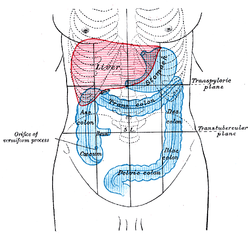The medical arena, like society at large, is permeated with self-interest. This reality makes me very skeptical that comparative effectiveness research, which I support, will get airborne. In medicine, every heath care reform, new medicine, new medical device or revised medical guideline is at some constituency’s expense. Recognizing and dismantling conflicts of interests is one of our greatest challenges and threats.
The medical arena, like society at large, is permeated with self-interest. This reality makes me very skeptical that comparative effectiveness research, which I support, will get airborne. In medicine, every heath care reform, new medicine, new medical device or revised medical guideline is at some constituency’s expense. Recognizing and dismantling conflicts of interests is one of our greatest challenges and threats.
When I was a gastroenterology fellow over 20 years, our department was active in new technologies to crush and dissolve gallstones and stones that had wandered from the gallbladder into the liver pipes. Millions of dollars of R & D were spent and the procedures were done in specialized centers in the U.S and abroad. The treatments were cumbersome and only modestly effective, but the treatments continued year after year. Then, laparoscopic cholecystectomy arrived, a new operation that could remove gallbladders with much less pain and recovery time. At that moment, the gallstone dissolving business dissolved. As endoscopic techniques improved, gastroenterologists could safely and easily remove stones from the liver pipes, which became the preferred method for accomplishing this objective. These outcomes served the public good, but this is not always the case. .
New medical developments are often pursued for both marketing and medical reasons. Large medical institutions will spend mightily for the latest high-tech robotic laser shooting burger-flipping tumor ray gun, even if (especially if) the competitor across the street already has one. Here in Cleveland, I suspect we have a mind numbing duplication of medical services in a very tight geographic reason. Since availability correlates with usage, I surmise that we are a model of overtesting and overtreatment. I am not assigning blame. Indeed, I need to be reeducated as much as anyone since we all practice medicine in a culture of excess.
The prism that should be used to view new medical development is if it serves the greater good. Many folks, however, define the greater good to be any outcome that coincides with their own parochial concerns. Conversely, if a particularly group is threatened by a medical advance, then it will be alleged that the greater good will surely suffer.
To a gastroenterologist, 50 is a milestone year. This is the age that we pounce upon you to scour your colon to remove cancers-in-waiting. While we champion this test, and sincerely believe in its worth, it is not ideal. Here are some drawbacks.
- The pre-colonoscopy cathartic cocktail
- Anxiety
- Discomfort (no it’s not always painless)
- Cost
- Risk of complications
- High rate of negative results
- Loss of a day’s wages or personal enjoyment
- Need for a driver
What will gastroenterologists’ reaction be when a better test threatens to retire our colonoscopes? Will we defend colonoscopy against a simple analysis of a person’s stool which is just as effective? Will we claim that the research behind the new development is flawed? Gastroenterologists have successfully prevailed against CAT colonography, a competing test which examines the entire colon for polyps using a CAT scan. We have the edge in this duel since patients who pursue the CAT scan option must still take a vigorous laxative and, if polyps are discovered, they cannot be removed. Colonoscopy’s unrivaled advantage is that it can remove nearly all polyps discovered. It’s one stop shopping. If radiologists perfect the technique of performing a CAT colonography without any required laxatives, then the scales may tip in their favor.
The above vignette is not a futuristic hypothetical creation. I suspect that colonoscopy and CAT colonography will be properly forced out during my own career as colon cancer screening techniques. Colonoscopy will still be performed, but only when some kinder and gentler screening test indicates that an individual has a high probability of harboring polyps. It will no longer be wielded in a buckshot fashion. The number of colonoscopies being performed will be decimated.
When that happens, it will not be good news for the Kirsch family. But, it will be greater good news for everyone else’s family.
